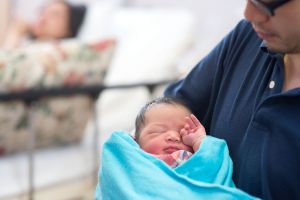A Source of Hearing-Healing Solution
"Children identified with hearing loss at birth and fitted with technology in the first weeks of life blend in so well with everyone else that people don't realize there are so many deaf children."
"[Given appropriate hearing devices and auditory training during preschool years, even children born deaf] will have the ability to learn with their peers when they start school."
"Eighty-five percent of such children are successfully mainstreamed. Parents need to know that listening and spoken language is a possibility for their children."
"Deafness today is not what it was twenty years ago. Technology is so much better that virtually every child with hearing loss will be able to hear with the right devices -- hearing aids and cochlear implants."
Jane R. Madell, pediatric audiology pathologist, Beth Israel Medical Center/New York Eye and Ear Infirmary, director, Hearing and Learning Center and Cochlear Implant Center
"Suddenly when I was playing soccer, I could hear what my teammates were saying. My mother practically cried when I heard a cricket chirping in the house."
"[My cochlear implant] really revolutionized my world at age eleven when at New York University Medical Center she was fitted with the implant]."
Joanna Lippert, 33, social worker
"The earlier you get the implant, the more successful it is because the more auditory input the brain gets at an early age, the better the auditory skills you will develop."
Amy Pollick, 43, psychologist
"The ability now to put implants in babies is incredible."
"They grow up with sound; they grow up hearing everything. Sound is a gift -- laughter, voices, nature."
Dr. Elizabeth Bonagura, obstetrician-gynecologist, surgeon
Drs. Pollick and Bonagura and Joanna Lippert speak with the authentic voice of authority. Not only professional authority, but the lived authority of people who as children grew up deaf or hearing-impaired. Theirs was the learning experience of hearing assists that enabled them to hear everything around them which in turn gave them the opportunity to speak normally. As another example, 27-year-old Jake Spinowitz, now a musician, benefited from the use of hearing aids until he reached 15, when he lost all residual hearing and the aids no longer worked.
"I began listening to music -- all kinds of music -- trying to make up for lost time", he explained, when at that juncture in his life he had a cochlear implant. "Sound makes the world a better place, so if you can have it, go for it", is a message he conveys to parents of children with profound hearing loss like his own. He played throughout high school and his college years in various bands, his implant enabling his passion for music. Now he is employed at YouTube.
 |
| Even newborns can be tested and treated for hearing loss. Healthy Hearing |
The auditory system depends on hair cells to transmit sound to the auditory nerve where the brain processes sound. When the hair cells fail to function, a cochlear implant bypasses them, delivering sound directly to the auditory nerve. Even babies are eligible for implants, and according to the National Institute on Deafness and Other Communication Disorders when children with profound hearing loss receive implants before they reach a year-and-a-half, they "develop language skills at a rate comparable to children with normal hearing".
Dr. Madell co-produced a documentary called "The Listening Project" whose purpose was a demonstration of the assistance available to hearing-impaired children with the use of modern hearing assists, augmented by auditory training. Social worker Amy Pollick's experience is a prime example of how an implant and training can transform a life. Her own two children have normal hearing, but her parents were deaf. They were determined their daughter would learn to speak.
To that end when she was six months old, her deaf parents equipped their tiny daughter with a hearing aid and with it came years of auditory therapy. Ms. Pollick obtained a cochlear implant when she was in graduate school researching primate vocalization, when her journey toward full hearing capacity was finally completed. The success story of these once-deaf children who became successful professionals in the field of science and the humanities should serve as a spur to parents whose children suffer from non-hearing disability.
Despite which, there is significant push-back from some deaf parents who reject hearing technology, insisting that children with profound hearing loss should preferentially be exposed to sign language, learning it as their primary mode of communication. Lacking the teaching stimulus of actually hearing how language is spoken, those children are unable to speak fluently as non-hearing-impaired children do. Leaving them at a decided disadvantage because their parents reject the thought that deafness is a condition calling out for a solution.
 |
| Pediatric audiologists administer hearing tests designed specifically for children. |
Labels: Cochlear Implants, Deafness, Health, Medicine, Research, Surgery, Technology

0 Comments:
Post a Comment
<< Home